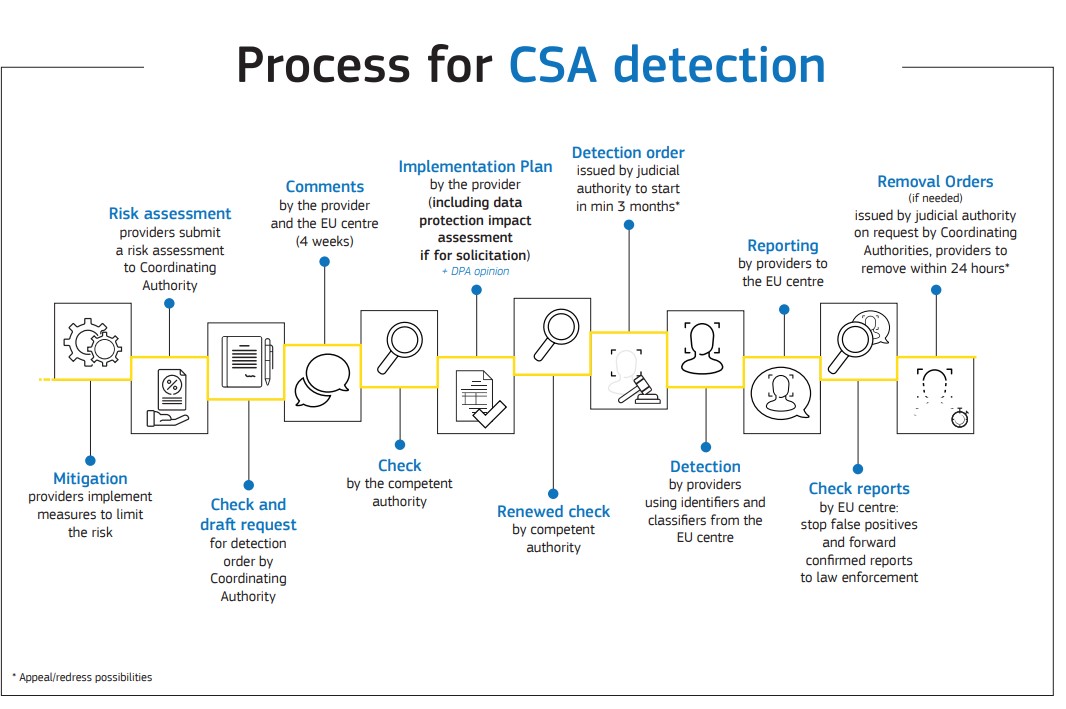Archived content
This website is no longer being updated. The content may be out-of-date and should be consulted for past reference only.
To find information about the College of Commissioners for the term 2024-2029, go to the Commission’s main website
To access websites outside the archive, copy and paste the web addresses (URLs) into your browser, and remove the archive part.
Last week, the European Commission released the results of the latest Flash Eurobarometer survey. Over 26,000 people across all 27 EU Member States were asked their views on the protection of children against child sexual abuse.
The result revealed two things. One grim, one encouraging.
92% of the consulted citizens agree that children are increasingly at risk online. And a large majority of Europeans (73%) consider online child sexual abuse to be a widespread or very widespread problem.
This are grim statistics because they reflect the truth. The Internet Watch Foundation reported its worst year on record for child sexual abuse online in 2021. And the National Centre for Missing Children in the US sent 32 million reports of child sexual abuse last year- more than ever before – and escalated 49,000 urgent reports to law enforcement of children in imminent danger.
Reporting this week shows decentralised social network Mastodon has already become a target for sharing child sexual abuse – illustrating that perpetrators will exploit any service for their purposes, unless we take action.
But while the situation is critical, last week’s survey also gave us hope. The survey also showed that 78% of Europeans interviewed support or strongly support my Commission proposal to fight child sexual abuse.
So, we have a clear result. People know the problem is getting worse, they know we need new tools to fight it and they see my proposal as the way forward.
In fact, 96% of respondents stated that the ability to detect child abuse was more important or equally important than the right to online privacy. Only 2% think that the right to online privacy is more important than the ability to detect child abuse. This was the second question in the survey, showing what people believe right from the outset.
Many Europeans clearly also expect us to balance privacy and the security of children and this is exactly what we have done. The Commission non paper discusses the balancing of fundamental rights and outlines the sound legal foundation on which the proposal is based.
My proposal can only be used to prevent, detect and report child sexual abuse.. This has been rigorously and sensitively planned so that that is the case. I outlined the checks and balances in my previous blog.
I want to repeat one vital fact. The clock is ticking. If this legislation doesn’t pass, detection, any detection could disappear. Next year, the EU interim regulation will expire – making it illegal even to voluntarily detect this criminal content in online messages, detection which has been going on for over ten years already.
If that happens there will not be a balance between fundamental rights. Not only would this be a disaster for children suffering from abuse. It would clearly not be in line with what citizens think – apart from the 2 per cent who believe privacy should trump all other considerations.
The Commission’s long-term solution is essential to protect children from child sexual abuse. So this poll also sends a strong message: Child sexual abuse online is a real danger, our citizens expect action. That should be our focus from which all else follows.
The survey in a snapshot:
- Respondents consider that children are increasingly at risk online (92%) and regard the problem of child sexual abuse online as very or fairly widespread in their countries (73%).
- see the ability to detect child abuse equally as important or more important than the right to online privacy (96%)
- support that service providers use tools to automatically detect images and videos already known (89%), new images and videos (85%) and grooming (84%), even if those tools may interfere with the privacy of users
- support that service providers detect CSAM and grooming in online messages (87%), also if the services use end-to-end encryption (83%) in case of a significant risk of child sexual abuse on a specific platform
- approve the Commission legislative proposal to prevent and combat child sexual abuse (78%).

Details
- Publication date
- 28 July 2023
- Author
- Directorate-General for Communication
